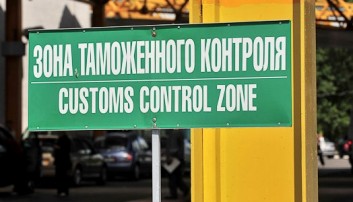‘Exit tax’: authorities look for most suitable mechanism to implement initiative
 The situation has not changed
The situation has not changed

In an interview with Respublika, a Belarusian state newspaper, Belarus’ Deputy Prime Minister Piotr Prokopovich said that the introduction of an ‘exit’ fee for Belarusians travelling abroad was to be considered within the next four to six weeks.
The variety of state decisions about how to pick into citizens’ pockets increases as Belarus’ economic situation deteriorates. The authorities do not dare to introduce large-scale economic reforms or respond to the economic challenges in their typically restrictive manner. On the one hand, Alexander Lukashenko’s proposal to introduce an ‘exit tax’ of USD 100 is a touchstone aimed at assessing people’s reactions and, ultimately, will be implemented in a form which is easiest for the majority to swallow. On the other hand, citizens, who usually rather sluggishly respond to the limitation of their political rights, are more willing defend their economic interests when such a threat occurs.
Negative developments in Belarus’ economic situation have pushed the government to adopt rather dubious mechanisms to address the economic challenges, since they have exhausted means of economic regulation. In the last four months, the country’s foreign exchange reserves continued to decline. Since June 2013, the population has been buying more currency than it was selling, and the gap was increasing each month. Since early 2013, exports by Belarusian companies have reduced significantly, which resulted in goods piling up at warehouses and increased imports. With his initiative to introduce an ‘exit tax’, Lukashenko attempts to address these particular problems.
However, the ‘exit tax’ on those travelling abroad will have only a short-term positive economic effect. If the ‘tax’ is introduced, the population will bypass it by using the open border with Russia.
The ‘exit tax’ initiative is meant to ‘test’ the population’s reaction and to assess the potential limits for picking into their pockets. The initiative has resonated broadly in Belarusian society, especially in the city of Minsk and the border regions. An online petition against the initiative went viral, which was unprecedented for Belarus. In two days, more than 16,000 people signed the petition. Depending on the people’s reaction, the government will choose in six weeks’ time what measures to implement. Most likely, they will affect the interests of the population in the border regions, where many live off cross-border trade. The decision is unlikely to affect Minsk residents much, since they are more active in defending their economic interests.
Authorities already have positive experience with similar initiatives, e.g. ones aiming at reducing the number of those engaged in cross-border trade. In 2011, during the economic crisis, restrictions were introduced, banning vehicles from crossing the border more than once every eight days. Back then, this measure provoked tensions in the border regions and spontaneous protests at border crossings in Grodno and Brest, but the authorities kept the situation under control quite easily.
Today officials are coming up with initiatives that more frequently affect the economic interests of the wider population. How the population reacts will determine the boundaries of the measures that the authorities will dare to implement. In any case, in order to fill the budgetary holes, the authorities will have to find additional financial resources, among others, by picking citizens’ pockets.
Subscribe to our newsletter




Situation in Belarus
Constitutional referendum: main consequences


 Video
Video
How to count the political prisoners: are the new criteria needed?


 Video
Video
Paternalism In Decline, Belarusian Euroscepticism, And The Influence Of Russia


 Video
Video












